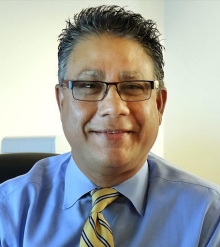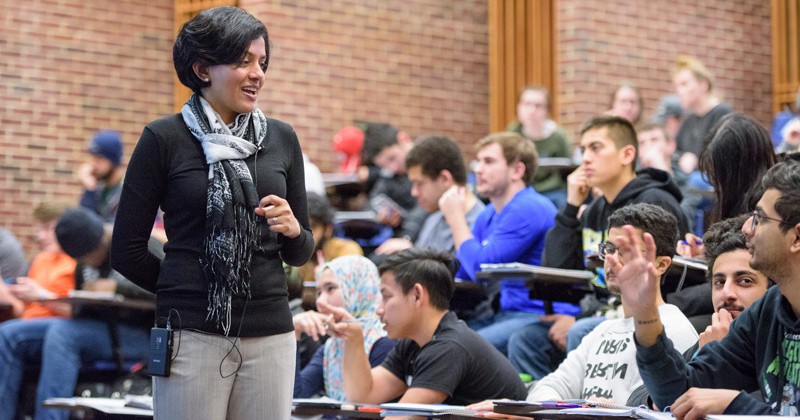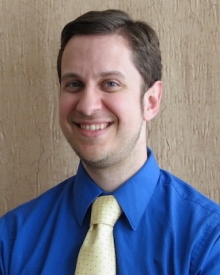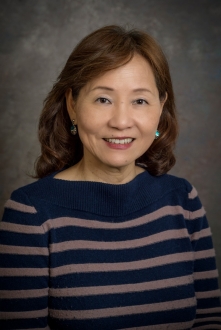Computing, engineering and polymer sciences converge in new NSF doctoral traineeship
Big-name chemical companies like DuPont and W.L. Gore have complex materials problems to solve. The trouble is they’re in need of well-rounded researchers to find the solutions they’ve been looking for, ideally highly skilled scientists with more than one area of expertise—like someone fluent in both materials engineering and computer science.
Recognizing that real-world need, award-winning UD Professor Arthi Jayaraman has created a collaborative, cross-disciplinary traineeship that will provide selected doctoral students from the University of Delaware and Delaware State University with the technical and professional training they need to thrive in their careers after graduation.

Anshuman Razdan
“That’s part of our mission, it’s at the core of what we do: Prepare our students, whether it’s for a life after as faculty or in national laboratories or industry,” said Anshuman (“A.R.”) Razdan, associate vice president of research development in UD’s Research Office. Jayaraman credited Razdan, along with Graduate College Dean Louis Rossi, for playing key roles in bringing her idea for this traineeship program to life.
“This is not a Ph.D. program by itself, but is designed to make the graduate student experience better,” Razdan said. “It’s an interdisciplinary collision, in a positive sense, and builds on extensive UD investment and success in the data sciences.”
The new National Science Foundation-funded Research Traineeship “Computing and Data Science Training for Materials Innovation, Discovery, AnalyticS” (NRT-MIDAS) will teach doctoral students in computer and information sciences, electrical and computing engineering, chemical engineering, materials science and engineering, biomedical engineering and chemistry programs how to use high-performance computing and data science to lead to new discoveries and innovations in the field of polymers.
NSF has awarded Jayaraman a nearly $3 million grant to support this traineeship over the next five years. Jayaraman, Centennial Term Professor in UD’s College of Engineering’s department of Chemical and Biomolecular Engineering with a joint appointment in Materials Science and Engineering, will serve as director of this traineeship program. This traineeship will work with 50 to 100 UD and DSU doctoral students, some of whom will receive financial support for two years through this NSF grant. International students will also be able to apply to the traineeship program and some selected students may receive one semester of financial support from the College of Engineering.
The program is slated to admit its first cohort of new UD and Delaware State University graduate students from one of the six specified programs in winter 2022. Applications are due by Tuesday, Nov. 30, and selections will be made by Wednesday, Dec. 15.
Besides the interdisciplinary technical skills, trainees will also learn the essential professional skills that every employer wants to see in their employees: Researchers who know how to interact with team members from diverse backgrounds and know the importance of adaptable science communication both in the laboratory and to the broader community.
“All of the training elements were strategically selected: The technical training elements, applying computing and data science to polymer problems in the real world, combined with professional training elements where trainees work in teams with people who aren’t from the same discipline, learning to communicate, and going above and beyond to explain their work to the other person,” Jayaraman said. “Essentially this MIDAS traineeship is that extra, customized, all-rounded training layer we’re putting on top of what these doctoral students receive in their own graduate programs.”

In this photo taken before the coronavirus pandemic necessitated the wearing of masks and distancing in classrooms, Prof. Arthi Jayaraman speaks with students in her chemical engineering class.
The diverse NRT core faculty team facilitating this collaborative training environment were also strategically selected, and were chosen because of their accomplishments and expertise in one or two of the relevant disciplines. For example, Prof. Laure Kayser with the Department of Materials Science and Engineering has expertise in polymer materials for organic electronics, Prof. Austin Brockmeier with the Data Science Institute and the Department of Electrical and Computer Engineering has expertise in data science applied to a variety of domain sciences, while Prof. Sunita Chandrasekaran with the Department of Computer and Information Sciences brings her expertise in high-performance computing.
On the forefront of solutions
Since polymers are used in everything from food packaging and paints to electronics and medical settings, companies are constantly searching for the latest and greatest materials for, say, an airplane body or COVID-19 vaccine delivery. That means both industry and academia are often pursuing ways to optimize polymers, turning to chemistry, materials science and engineering for solutions.
By offering professional cross-training in those disciplines as well as computer science and data science, Jayaraman hopes trainees will learn how to let the machines handle the optimization and avoid the tedious trial and error that would usually come with running all possible experiments in the lab. By combining disciplines, they can use computing, modeling and artificial intelligence to save the chemicals, time and effort that extensive laboratory experiments typically need.
“If you just did experiments in a lab, you’d test one chemical and ask, ‘How does it perform? How does it behave?’ and then move to the next chemical and repeat the process. This is trial and error,” Jayaraman said. “Companies often want to find faster and cheaper ways to explore different chemicals and get to the better-performing product.”

Joshua Enszer
That’s why Jayaraman made sure the program is partnering with companies searching for such solutions. In addition to DuPont and W.L. Gore, the traineeship has also established industry partnerships with Argonne National Laboratory, Brookhaven National Laboratory, Merck & Co. and Procter & Gamble, with more companies expected to join in the coming months and years.
An “NRT-Hackathon” course that is being designed for the traineeship program, after trainees complete core classes and right before they explore internships, will collect real-world problems from participating companies and turn them over to small teams of students to explore and solve with computing and data science tools over the course of a semester.
“Each problem will be a semester-long problem, and students from different disciplines in each team will have to teach each other what it means,” Jayaraman said, noting that a computer sciences student will need to learn the specific properties of a chemical, while the chemical engineer sharing that information will have to learn about the computing methods their computer science colleague is using to develop data-based solutions.
Not only will the training benefit students, but it will also serve existing and future industries by preparing a well-rounded workforce and also finding ways to solve real problems by replacing trial-and-error based experiments with computing-based approaches.
“It more than bridges the gap, it has a serious economic impact,” Razdan said, noting that the program could also help participating students decide whether a life in industry or academia is better for them.
In addition to these custom interdisciplinary courses that emphasize the importance of clear communication across disciplines, trainees will also complete their regular graduate work, and benefit from a secondary NRT-MIDAS-specific adviser.
“The way a chemical engineer talks and the way a computer scientist talks is not the same,” Jayaraman said. “We want to sharpen those professional skills, especially cross-disciplinary communications, by working in team environments with different backgrounds, both culturally and technically.”
An academic approach
Not all of the talented graduate students that will be selected for this traineeship will pursue industry careers; some may want to work in academia, where they could foster this comprehensive approach in their own future classrooms. Those pedagogically minded students will hone the teaching and communications skills they’ll need, but would otherwise not be included in their normal graduate programs. With this motivation, Jayaraman recruited a pedagogical expert into the NRT-MIDAS core faculty team.

Cathy Wu
“What we’re trying to do here is fill in a big need to have people who are better teachers from the start,” said Joshua Enszer, a chemical and biomolecular engineering associate professor and member of the NRT core faculty team. The NRT-MIDAS teaching fellowship builds off a program underway in the Department of Chemical and Biomolecular Engineering, where a handful of fellows work with faculty to actually implement a course during their graduate studies, he said.
“Because we’re bringing together these very important and very related areas, we’re working on helping improve communication on both sides,” Enszer said. “Bringing that together and then teaching everyone together is a really exciting opportunity. I think it’s going to help prepare this generation of graduate students for a variety of potential different careers.”
A diverse NRT-MIDAS core faculty team of nine faculty members, including Jayaraman, will provide technical and research training and mentoring. An independent advisory council, made up of six international experts from academia, national laboratories and industry, will offer their perspectives and recommendations in order to strengthen this interdisciplinary traineeship.
“UD really is an excellent environment for doing team science,” said Prof. Cathy Wu, an NRT-MIDAS core faculty member and Unidel Edward G. Jefferson Chair in Engineering and Computer Science, director of the Center for Bioinformatics and Computational Biology, director of the Data Science Institute and director of the Protein Information Resource. “This is just a great example of how Arthi (Jayaraman) has brought such an excellent, diverse team together for this particular training grant. But if we look around UD, this kind of very collaborative effort is happening with many different initiatives. I think team science, this kind of very inclusive environment, really is a signature of what we do at UD.”
Jayaraman and others at UD hope this training continues beyond the recently awarded grant.
“I tell faculty it’s like building a building,” Razdan said. “We want the faculty focused on building the building, constructing the idea. All of us, we’re here to support Arthi with scaffolding so she has everything she needs to imagine and execute the ideas that can only come from her. We’re very, very happy to be that scaffolding for her.”
Photos by Evan Krape | November 02, 2021

